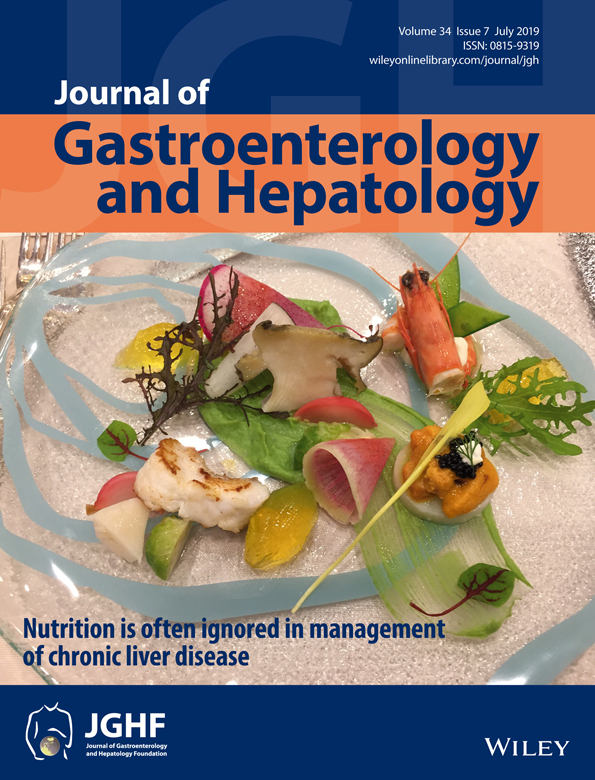Usefulness of newly modified fully covered metallic stent of 12 mm in diameter and anti-migration feature for periampullary malignant biliary strictures: Comparison with conventional standard metal stent
Abstract
Backgrounds
Fully covered self-expandable metal stent (FCSEMS) are preferred for distal malignant biliary stricture (MBS). However, stent migration is a major adverse event of FCSEMS, especially for far distal MBS. We evaluated the usefulness of newly modified FCSEMS (M-FCSEMS) having 12 mm in diameter and anti-migration feature to minimize stent migration compared with the conventional FCSEMS (C-FCSEMS).
Methods
Total 102 patients were enrolled between January 2015 and September 2017 in this prospective comparative study; 50 were allocated to the M-FCSEMS group and 52 to the C-FCSEMS group. The primary outcome was stent migration, and the secondary outcomes were other adverse events, stent occlusion rate, and stent patency during the follow-up period.
Results
The baseline characteristics of the two groups did not significantly differ. Endoscopic stent placement was technically successful in all patients. Stent migration occurred in 8.0% (4/50) of the patients in the M-FCSEMS group and 23.1% (12/52) of those in the C-FCSEMS group (P = 0.036). The other adverse events, including stent-related pancreatitis and cholecystitis did not significantly differ between the two groups (P = 0.415). Stent occlusion occurred in 23.9% (11/46) of the patients in the M-FCSEMS group and 37.5% (15/40) in the C-FCSEMS group (P = 0.171). Stent patency was significantly longer in the M-FCSEMS group than in the C-FCSEMS group (228 vs 157 days, P = 0.048).
Conclusions
Modified FCSEMS with 12-mm diameter and anti-migration feature significantly decreased the risk of stent migration and had longer patency compared with C-FCSEMS in patients with periampullary MBS.




